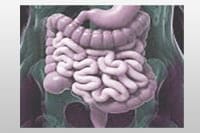 |
Diet and Irritable Bowel Syndrome (IBS) |
| According to the American College of Gastroenterology, only a few processes related to diet have been addressed in clinical trials such as intolerance and hypersensitivity. The findings so far have not been conclusive and provide limited guidance on how dietary changes could be used in the management of IBS. Key findings include.3
|
The role of fiber in IBS |
| Dietary fiber can be classified as either soluble or insoluble. Soluble fiber dissolves in water and forms a gel. It is found in several vegetables, fruits, and cereals. Insoluble fiber does not not absorb or dissolve in water and passes through our intestines largely intact.
Key points related to fiber: 3,8 Metamucil dosing info: Based on information from the Metamucil website. Accessed: July 2017. https://www.metawellness.com/en-us/about-our-products/metamucil-fiber-supplement © 2017 Procter & Gamble
Dosage: [sugar-free version] Note: 1 teaspoon (sugar-free powder) = 1 tablespoon (sugar version). Supplement information 2 rounded tsp: [11.6 grams of psyllium husk] Sugar (sucrose) version 2 rounded tbsp:
|
References |
Diet and Irritable Bowel Syndrome (IBS)
Reference(s)
National Institutes of Health, U.S. National Library of Medicine, DailyMed Database.
Provides access to the latest drug monographs submitted to the Food and Drug Administration (FDA). Please review the latest applicable package insert for additional information and possible updates. A local search option of this data can be found here.


